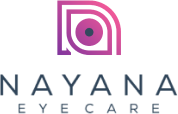In our fast-paced, screen-dominated lives, it’s easy to overlook regular eye exams. However, taking the time to care for your vision is crucial. Just as we schedule regular check-ups for our overall health, our eyes require similar attention. In this blog, we’ll discuss the importance of regular eye exams, what to expect during your visit, and why these exams play a vital role in preserving your eye health.
Why Regular Eye Exams Are Crucial
Eye exams are more than just a quick vision check to determine if you need glasses or contact lenses. They are comprehensive evaluations of your overall eye health and can detect underlying issues that may not have apparent symptoms. Here are key reasons why regular eye exams matter:
- Early Detection of Eye Diseases
Many serious eye conditions, such as glaucoma, cataracts, and macular degeneration, often show no symptoms in their early stages. By the time noticeable symptoms appear, the damage may already be significant and irreversible. Regular eye exams allow your optometrist to catch these issues early, often before permanent vision loss occurs. - Detecting Systemic Health Issues
Your eyes can provide a window into your overall health. During a comprehensive eye exam, an optometrist may detect signs of conditions like diabetes, high blood pressure, or even high cholesterol. This can lead to earlier intervention and treatment of these broader health concerns. - Vision Changes and Prescription Updates
Vision can change gradually over time, and without regular exams, you might not notice a slight decline in your vision clarity. Regular exams ensure that your prescription is up to date, reducing eye strain and ensuring optimal vision, whether you wear glasses or contact lenses. - Children’s Vision Health
Eye exams are especially important for children, whose vision is still developing. Undiagnosed vision problems can affect a child’s ability to learn and perform well in school. Early detection and correction can make a big difference in a child’s academic and social development.
What to Expect During an Eye Exam
A routine eye exam is typically painless and straightforward. Here’s what you can expect during your visit:
- Medical and Vision History
Your optometrist will start by asking about your medical history, including any vision problems you’ve been experiencing, previous eye conditions, or family history of eye diseases. It’s also important to mention any medications you’re taking as they can affect your eye health. - Vision Tests
You’ll undergo several tests to evaluate the clarity of your vision. The optometrist will ask you to read letters from a chart at varying distances to determine your visual acuity. This is where you may learn if you need corrective lenses or an updated prescription. - Eye Muscle and Movement Test
The optometrist will check how well your eye muscles function and how smoothly your eyes follow a moving object. This test ensures your eyes are working together properly. - Refraction Test
During a refraction test, the optometrist uses a device called a phoropter to determine your prescription. You’ll be asked to look through lenses of varying strengths and decide which one provides the clearest vision. This test helps measure nearsightedness, farsightedness, and astigmatism. - Eye Pressure Test (Tonometry)
To check for glaucoma, the optometrist will measure the pressure inside your eyes. This is often done with a puff of air or a special device that gently touches the eye. It’s a quick and painless test but crucial for detecting glaucoma early. - Retinal Examination
The optometrist may use eye drops to dilate your pupils, allowing them to examine the back of your eye (the retina) more closely. This test helps detect diseases like macular degeneration and diabetic retinopathy.
How Often Should You Get an Eye Exam?
The frequency of eye exams depends on your age, risk factors, and whether you already wear corrective lenses:
- Children: Regular eye exams are recommended from as early as 6 months, then around age 3, and before they start school. After that, children should have an exam every one to two years.
- Adults (18-60): Adults with no significant eye issues should have an exam at least every two years. Those with vision problems or at higher risk for eye diseases may need more frequent visits.
- Seniors (60+): As you age, the risk of eye conditions increases. Yearly eye exams are recommended to monitor for conditions like cataracts and macular degeneration.
Conclusion
Regular eye exams are essential for maintaining good vision and overall eye health. They can detect problems early, provide updates on your vision, and help identify broader health issues. Don’t wait for symptoms to arise—schedule an eye exam today to take proactive steps toward preserving your sight.
At Nayana Eye Care, we are dedicated to providing comprehensive eye exams to ensure your eyes are healthy and your vision is clear. Contact us today to book an appointment and take the first step in protecting your eyes for the future. Contact Us

